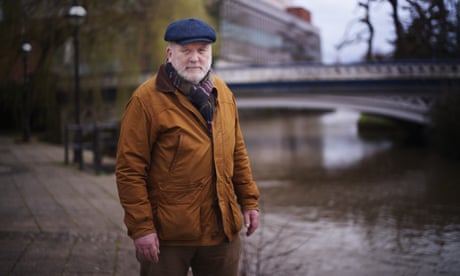
A local news website conceived over a pint and named after a mythical creature has become the first in the UK to be given charitable status, providing a “glimmer of hope” to the future of local journalism.
The Guildford Dragon has become the UK’s first charitable public interest news provider after a six-month application process which experts hope will provide a lifeline to the decimated local news industry.
“It would be fantastic if we’re successful and this leads the way for other similar news publications to also become sustainable,” said Dragon editor Martin Giles, who has worked – unpaid – seven days a week for the title for more than a decade.
The move could mark a step-change in an industry that has veered from crisis to life-support. Figures published last month by Press Gazette show that in the 15 years leading up to 2022, revenue at the main regional publishers plummeted by more than 80%, when adjusted for inflation.
The number of local journalists scrutinising councils, interviewing MPs and keeping track of local developments fell from a 13,000 to 4,000, which MPs and experts have said is having a devastating impact on the scrutiny of local democracy.
“The local newspaper as it existed in the 1950s has been dying for years, but it’s comprehensively dead now. There’s a very real crisis and that is a very real problem for democracy,” said Jonathan Heawood, executive director of the Public Interest News Foundation, a charity which funnels donations into public interest journalism.
While more than four million people in the UK live in “news deserts” without adequate local journalism, the awarding of charitable status to the Dragon provided a “glimmer of hope”, he said.
Tom Murdoch, from law experts Stone King who advise the Charitable Journalism Project (CJP) campaign, said the publication can now benefit from a range of traditional tax breaks, and attract donors who can also get tax relief on money handed over to support public interest journalism. “This decision accepts a public interest news definition that is charitable,” he said. “That is huge progress, it’s a doorway to sustainability.”
Government reaction to the struggles of local news has been muted. It rejected proposals, made in the 2019 Cairncross review, to extend charitable status to many struggling local news outlets, arguing that they would be banned from supporting political parties, stopped from being for-profit, and much journalism does not work “only for the public benefit”. They also dismissed calls for an arms-length, state-funded organisation supporting public service, on the basis that it would damage press freedom.
Despite this, a new wave of local and hyper-local websites are rising up from the rubble of local news. The Bristol Cable is member-funded, while in Glasgow, two nonprofit outlets – Greater Govanhill and the Ferret – have come together to open the UK’s first community newsroom. Social Spider Community News, which has six London-based publications, is a social enterprise which is now breaking even.
“We are trying to find a way to save local journalism while keeping it free to access, as we consider it to be a public service,” said editor James Cracknell, who has spent his career in local news including a stint at Reach, which recently cut about 10% of its workforce.
Others are going down a commercial route. Reader-funded local news outlet Mill Media is expanding after being valued at £1.75m by a group of investors including the former New York Times boss Mark Thompson.
The Dragon – which was conceived over a moan about the state of local news coverage by Giles and a former chief sub of the Surrey Advertiser in the local pub – has more modest short-term ambitions. It has already had a significant local impact – after one story about events at a local parish council all but one councillor stood down.
Giles hopes to raise £70,000 to pay for one and a half members of staff, so Guildford’s council meetings and coffee shop openings can be covered more comprehensively.
He explained that the name of the publication came from a legend of a dragon who had protected a local pre-historic site. “That’s why I’m so keen on sustainability because I’m not going to be around for ever. In the future I want the news to still be available to people in this community,” said Giles. “We like to think we also have a protective role over the area.”